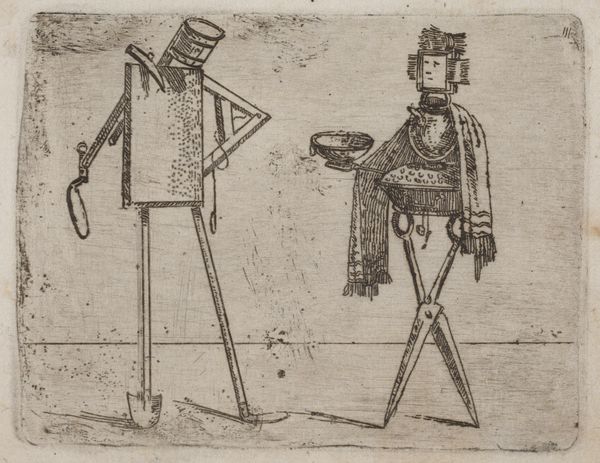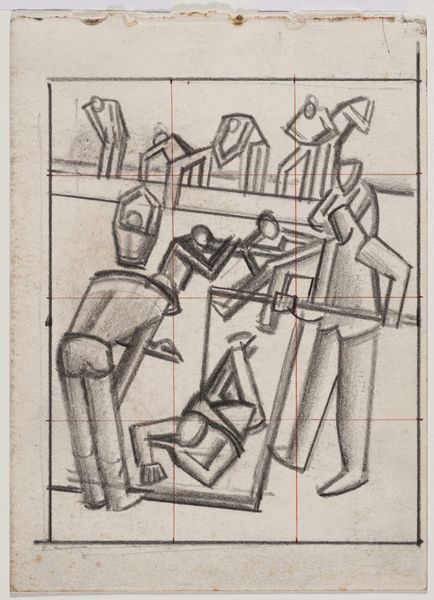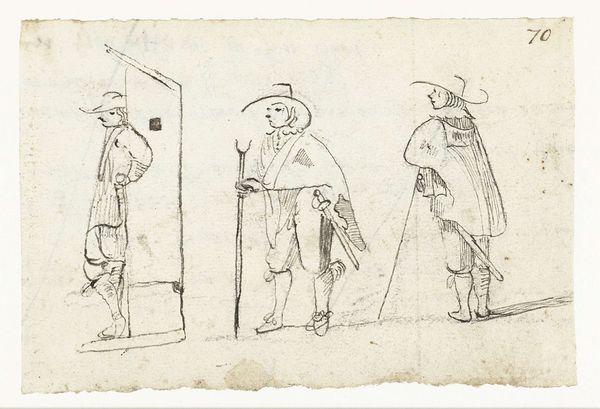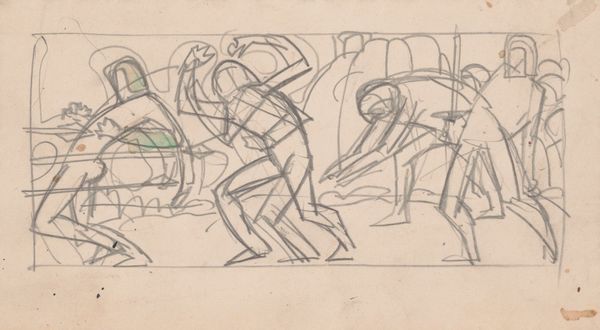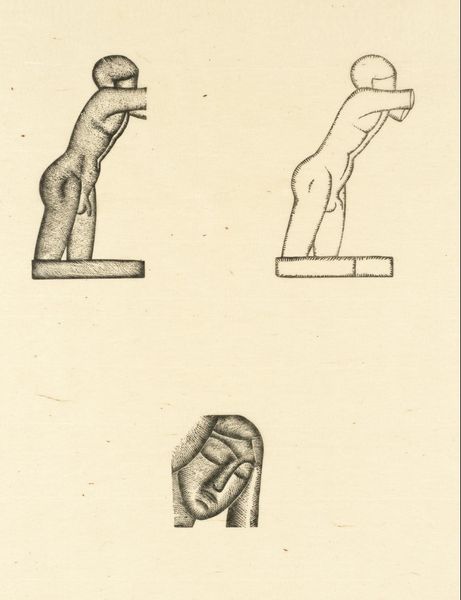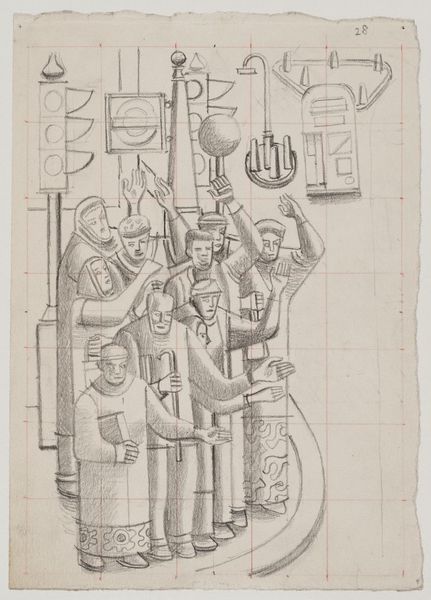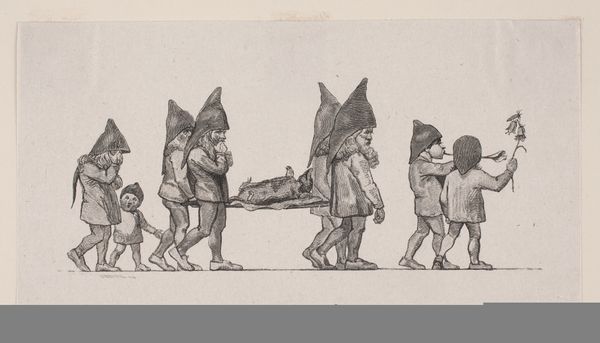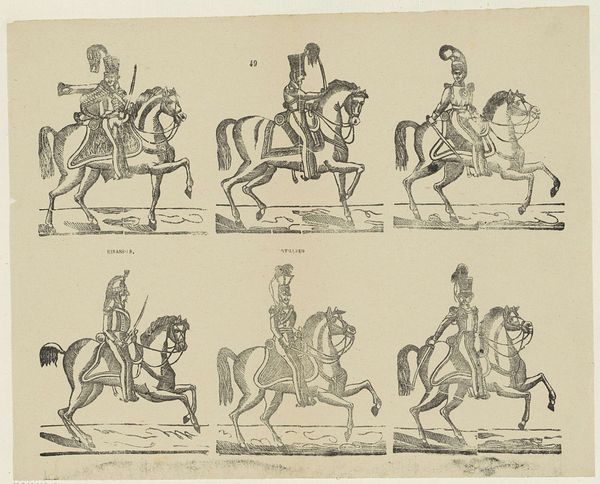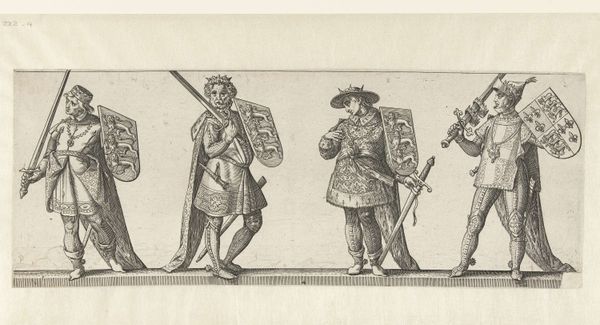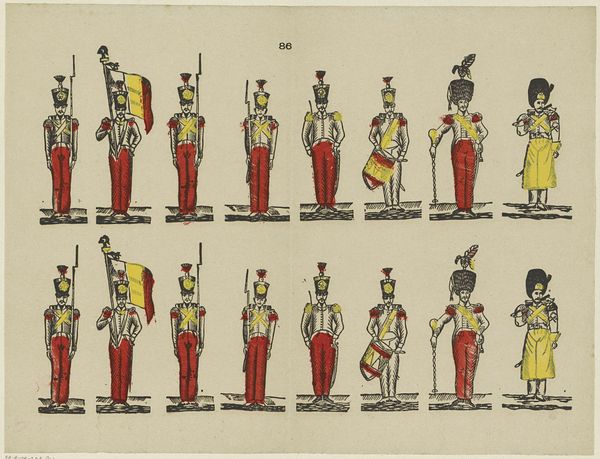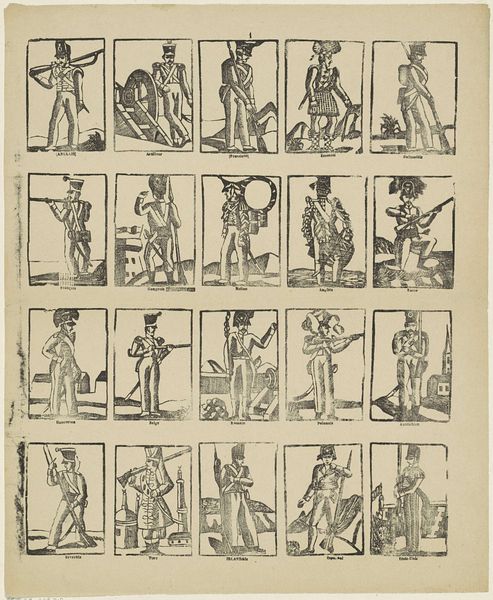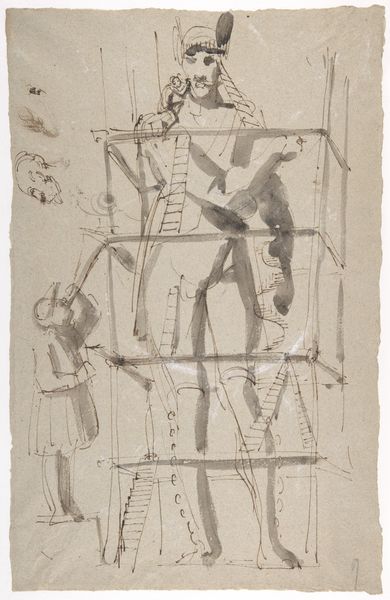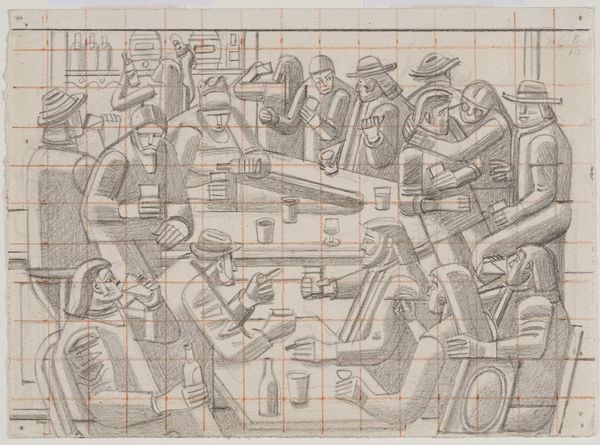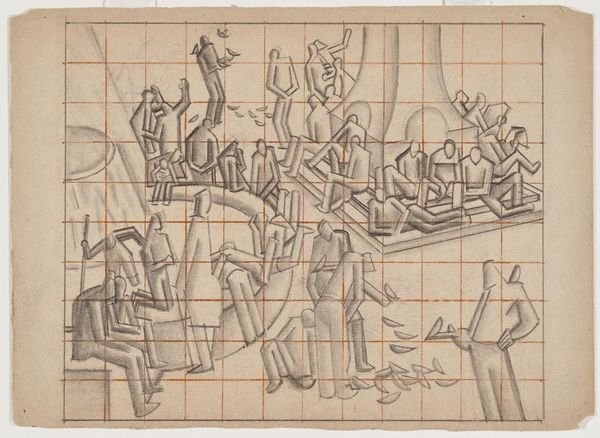
drawing, ink
#
drawing
#
pen sketch
#
figuration
#
ink
#
geometric
#
line
#
genre-painting
#
realism
Dimensions: height 144 mm, width 302 mm
Copyright: Rijks Museum: Open Domain
Editor: So, this is "Marcherende poppen in uniform," created in 1898 by Willem Wenckebach, using ink. These little wooden soldiers marching along look quite stern, considering they're toys! What strikes you about this drawing? Curator: I see a fascinating commentary on the industrialization of warfare. Notice how Wenckebach employs simple lines to render these toy soldiers. The starkness, the repetitive nature…it all speaks to the mass production and dehumanization inherent in military systems. How does the artist use the ink itself to convey this message? Editor: That's interesting! The ink strokes are quite uniform, giving them that mass-produced feeling you mentioned. Curator: Exactly! And consider the material itself—ink. Relatively inexpensive and easily reproduced, much like the propaganda churned out by nations to fuel militarization. It makes you think about the tools and resources that allow such grand-scale conflicts. What do you make of the almost whimsical design choices set against this serious backdrop? Editor: Well, there is that tension of the silly toys. It seems contradictory. Curator: Precisely. By choosing to represent soldiers as simple, manufactured toys, Wenckebach blurs the lines between play and the serious business of war. The drawing reminds us that even something as innocent as a toy soldier can become a vehicle for societal conditioning and, ultimately, participation in industrialized warfare. Editor: I hadn’t considered the materials as being part of that message. It’s given me a new way of seeing the connection between artistic process, materials and its overall social commentary! Curator: Indeed. By examining the work through its materials and means of production, we gain deeper insight into the artist's message about labour, war, and consumption.
Comments
No comments
Be the first to comment and join the conversation on the ultimate creative platform.
